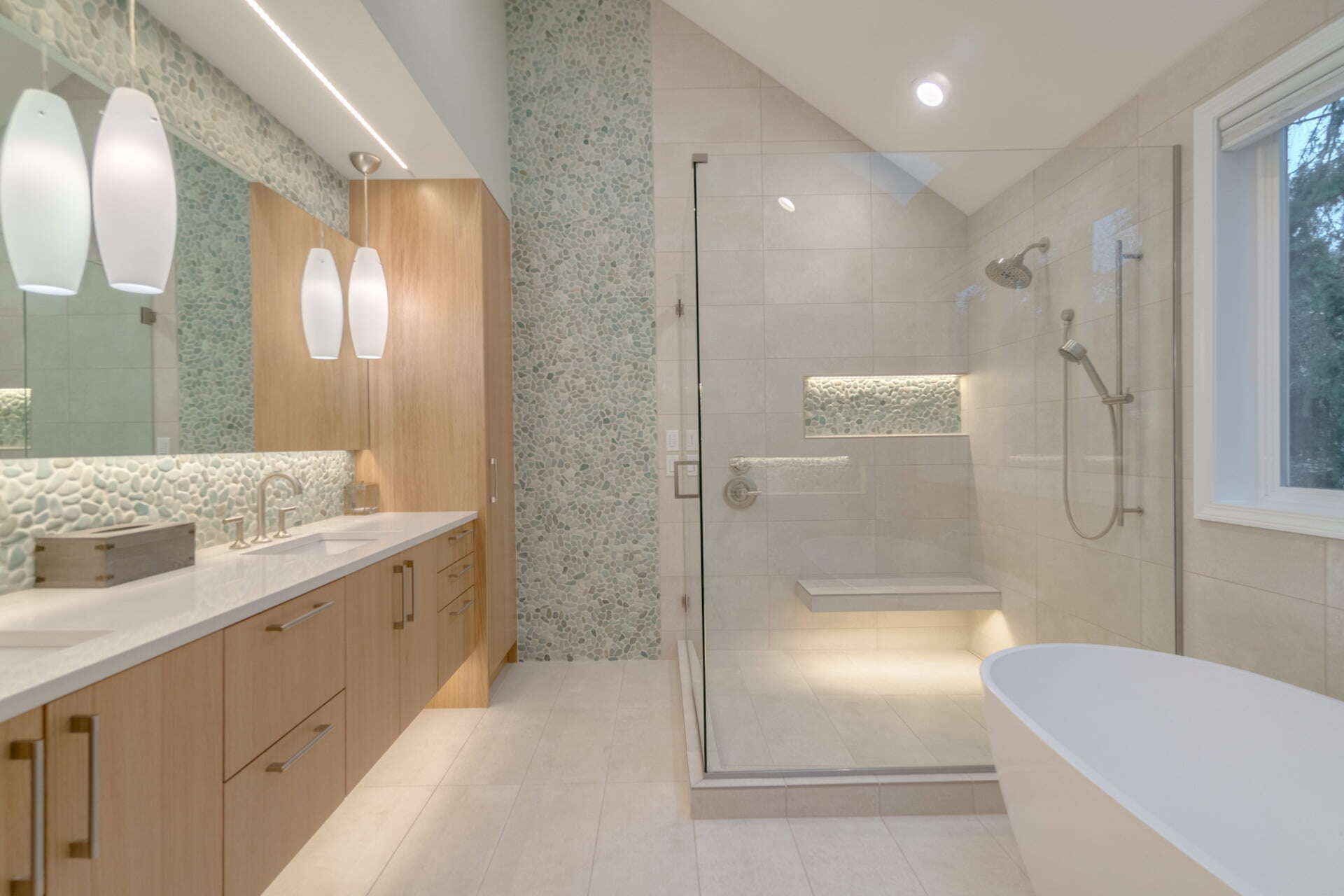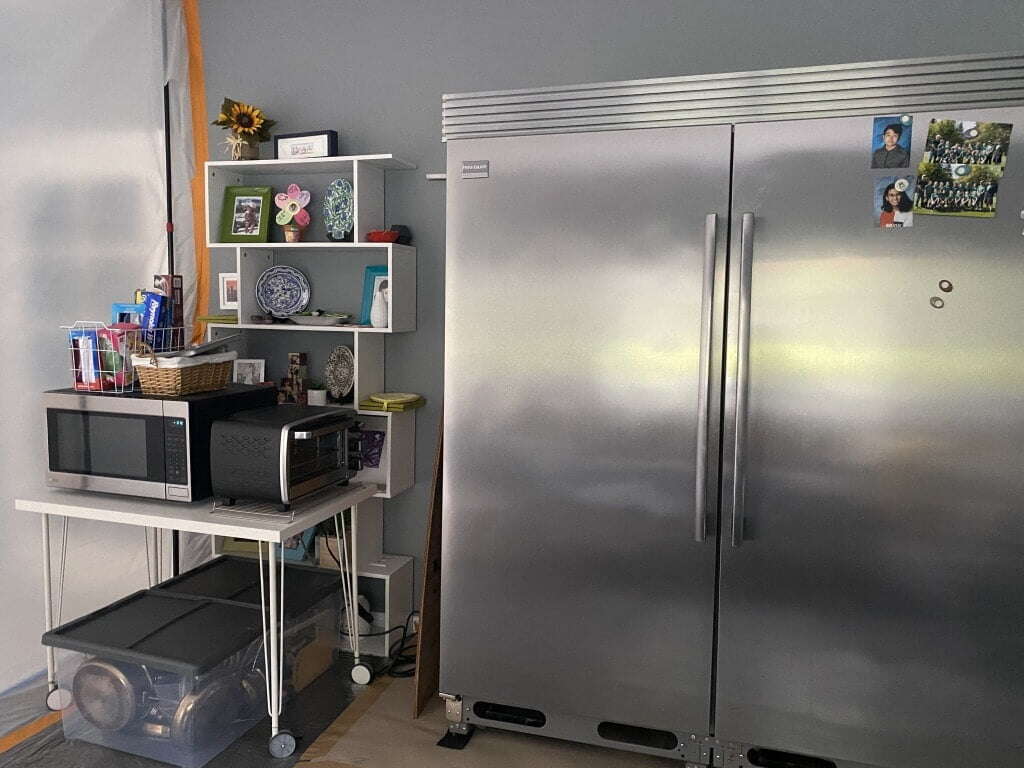Most home remodels will disrupt your daily routine in some way. You could be without a kitchen or bathroom for a few weeks. Or you may need to move out altogether for a while. That’s on top of the seemingly countless decisions you need to make. So how do you stay calm throughout it all? Here are 5 ideas on how to reduce home renovation stress.

1. Have a clear budget
Many times, the biggest cause of stress before and during a remodel is the budget. Determining what you can afford, how to pay for your remodel, and making sure it stays on budget can all cause a fair amount of anxiety.
The first step is to estimate your remodel costs. This involves creating a basic budget, investigating your various payment options and what you may qualify for, and then drilling down into the details with your remodeling partner or contractor. That last part is critical. You want to make sure the remodeling company you work with has a clear and easy-to-understand budgeting process. At Lamont Bros., we use a straightforward “good, better, best” system to walk clients through each aspect and product selection of the remodel during the design process.
When the design process for your project is complete, make sure you have detailed permit drawings, a list of every product that’s going into your remodel, and a fixed-price construction contract. This will help you stay in control of your budget and ease some anxiety.
2. Make sure there’s a clear schedule
Along with a detailed budget, it’s also important to get a clear schedule from your remodeling partner. This should include what work will be done when, along with a final date for expected project completion. Nearly every renovation project encounters some bumps along the way and a minor delay or two for various reasons. But having a schedule with key milestones spelled out will give you some peace of mind on whether your project is on track. If it looks like a deadline may be missed or will need to be pushed out, your project manager should communicate that with you beforehand and let you know how the schedule will be adjusted.
Delays can be frustrating, but understanding what’s causing them and how they will be addressed can help you from becoming worried or upset.
3. Keep the lines of communication open
That brings us to our third tip on how to reduce home renovation stress: keeping the lines of communication open with your project team. Simply the process of letting a team of people you’ve just met into your home for a few weeks can cause anxiety. But a great team leader will not only keep your project on track, he or she will also regularly keep you up-to-date on how it’s progressing. At Lamont Bros., we assign a Remodeling Superintendent to each project. The RS is on-site every day working on your home, and is available to answer your questions. This also provides you with a way to voice any concerns you may have. Having a resource like this and taking advantage of it can really help you get a sense of how your remodel is going and can nip potential issues in the bud.
4. Set up temporary areas

If you’re doing a kitchen remodel, chances are you’ll be without that space for a few weeks. Plan ahead by setting up a temporary kitchen in your home, so you can stick to your routine somewhat and you aren’t ending up spending a small fortune eating out.
A bathroom renovation can also cause some disruption, especially if it’s the only one in your home. In these cases, ask your remodeler to set back the toilet each day so you can use it after they leave for the day. Also, see if they can set up a temporary shower in your basement or even outside, season-permitting.
Or consider moving out during construction
If you’re planning a more extensive remodel, it may make sense to move out for a while during peak construction periods. If you can only manage to be out of the home for part of the project, work with your contractor to see how the remodel will be staged. For example, they may start with the kitchen and one bathroom, so you can keep using your master bathroom and a temporary kitchen. When those spaces are complete, you’d be able to use them while they tackle the master bathroom
That said, typically during a whole home remodel, there will be a period of several days to a couple of weeks when you’ll need to be out of the home completely. This is particularly true if you’re refinishing floors. To help reduce stress, your builder should let you know in advance when these days will be so you can plan accordingly and you’re not scrambling at the last minute.
5. Be flexible
As we mentioned before, even the best run remodels will have a hiccup along the way. While having a detailed schedule and budget is important, it’s also helpful to know what things can affect them. Changes to the design or to the scope for example can put pressure on both the timeline and the costs. That’s not to say you should avoid making changes along the way — in most cases, you’re creating your dream space after all — but knowing how those decisions could relate to your project and being ok with that can help alleviate stress. On the flip side, being very rigid with your timeline or setting an unrealistic budget could cause your stress levels to spike, making for an unpleasant experience overall.
The bottom line: home renovations will come with at least a bit of stress for most people. Understanding what to expect throughout the process and being able to accommodate a bit of uncertainly can go a long way to reducing those worries. In the end, you’ll be able to enjoy the process more, as well as your brand new space.



